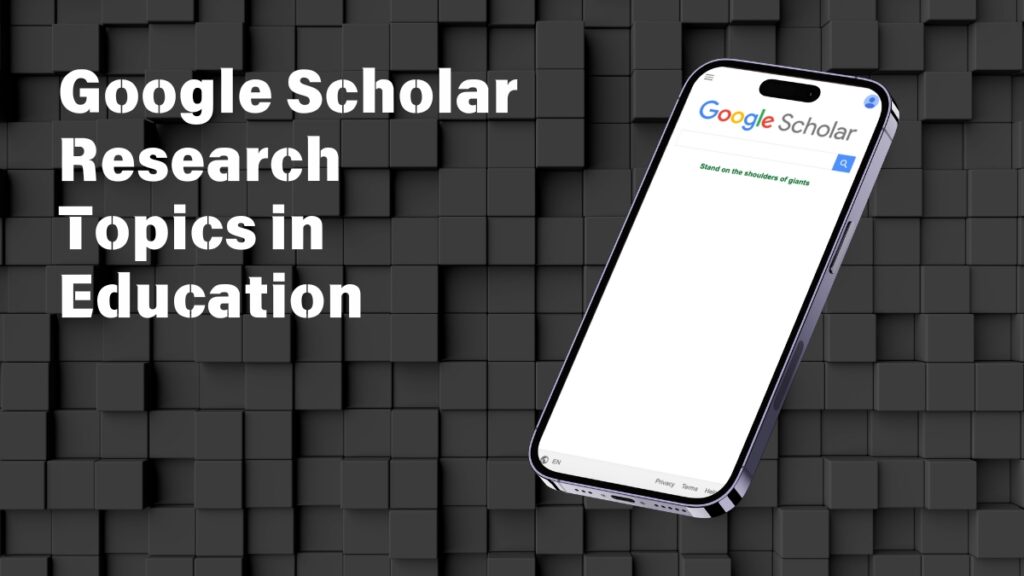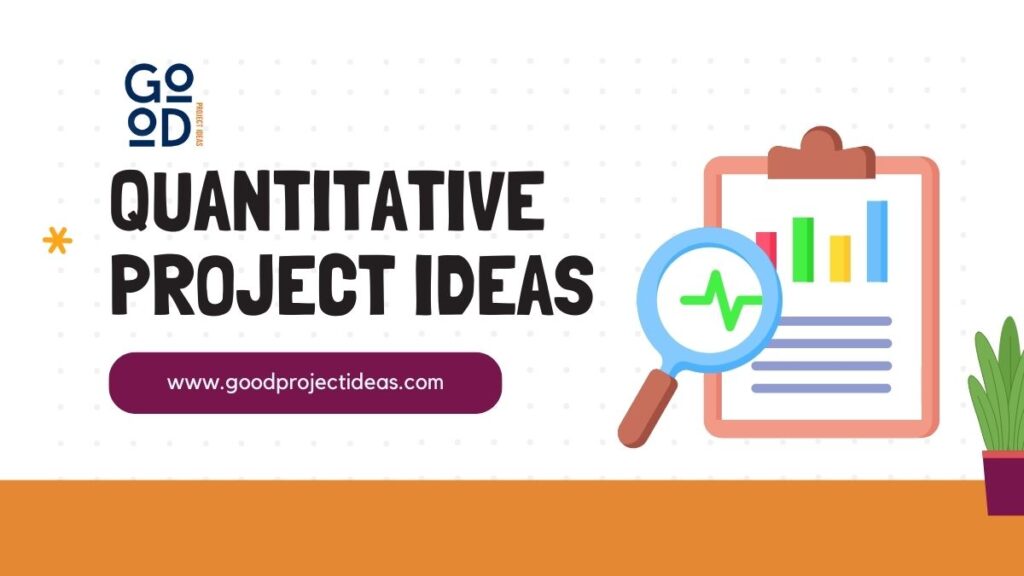Explore exciting Google Scholar research topics in education! Find new ideas that can inspire teaching and learning for everyone.
Hey! Are you curious about what’s happening in education today? Google Scholar is a cool place to find interesting research topics that can really change how we teach and learn. Whether you’re a teacher, a student, or just love learning, exploring these topics can spark fresh ideas.
In this post, we’ll check out some exciting research areas in education and the questions that are shaping the future of learning. Let’s dive in and see how Google Scholar can keep you inspired in the education world!
What is Google Scholar?
Google Scholar is a free tool that helps you find academic articles, theses, books, and research papers. It’s great for students, teachers, and anyone interested in learning more. With Google Scholar, you can:
- Search for topics: Find research on specific subjects.
- Access articles: Get links to full texts, sometimes for free.
- Cite sources: Easily get citation formats.
- Discover related research: Find other studies on similar topics.
It’s a useful resource for exploring academic ideas!
Key Features of Google Scholar
Here are the key features of Google Scholar in simple terms:
| Feature | Description |
|---|---|
| Academic Search | Easily find research articles, theses, and books. |
| Citation Tool | Get citations in various formats (like APA or MLA) with a click. |
| Full-Text Links | Access full articles, sometimes for free, directly from search results. |
| Related Works | Discover similar research based on your interests. |
| Alerts | Set up alerts to get notifications for new research on specific topics. |
| Author Profiles | View profiles of researchers, including their publications and citations. |
| Metrics | Check how often articles are cited to see their impact in the field. |
These features make Google Scholar a valuable resource for anyone looking to explore academic research!
How to Navigate Google Scholar for Educational Research?
Here’s a simple guide on how to navigate Google Scholar for educational research:
Go to Google Scholar: Visit scholar.google.com.
Use the Search Bar: Type in keywords related to your research topic (e.g., “education technology” or “student motivation”).
Refine Your Search:
- Use quotes for exact phrases (e.g., “online learning”).
- Use the minus sign to exclude words (e.g., “math -elementary”).
Filter Results:
- Use the options on the left to filter by year to see the most recent research.
- Check the “Cited by” number to find popular studies.
Access Articles: Click on titles to view articles. Look for links to the right for free versions.
Check Citations: Click on “Cite” under an article to get citation formats.
Set Up Alerts: Click on the “Alerts” option to receive updates on new research in your area.
Explore Related Research: Look for links to similar articles at the bottom of a paper.
This simple approach will help you find valuable educational research on Google Scholar!
Popular Google Scholar Research Topics in Education
Check out popular Google Scholar research topics in education:-
Student Engagement
- Fun Learning: Study games that make learning fun.
- Tech Tools: Research apps that help students stay focused.
- Student Voice: Explore how students can share ideas in class.
- Classroom Design: Investigate how room setup affects learning.
- Peer Learning: Study benefits of students teaching each other.
- Flexible Scheduling: Explore how different schedules impact engagement.
- Hands-On Projects: Research projects that let students learn by doing.
- Extracurricular Activities: Study how clubs boost school spirit.
- Feedback Methods: Explore best ways to give feedback to students.
- Cultural Relevance: Research how cultural topics increase interest.
Inclusive Education
- Diverse Needs: Study strategies for teaching diverse learners.
- Assistive Tech: Research tools that help students with disabilities.
- Culturally Responsive Teaching: Explore teaching methods that respect all cultures.
- Social Skills: Study ways to teach social skills to students.
- Teacher Training: Investigate training for inclusive education.
- Community Support: Research how community can support inclusive education.
- Peer Support: Study how buddies help students with special needs.
- Universal Design: Explore classroom designs that work for everyone.
- Behavior Management: Research strategies for managing diverse behaviors.
- Parent Involvement: Study how parents can support inclusive learning.
Technology in Education
- Online Learning: Explore benefits of virtual classrooms.
- EdTech Tools: Research popular educational apps and their use.
- Digital Literacy: Study how to teach tech skills to students.
- Gamification: Investigate how game elements improve learning.
- Blended Learning: Research combining online and in-person learning.
- Student Privacy: Study concerns about data safety in schools.
- Tech Training for Teachers: Explore how to help teachers use technology.
- Access Issues: Investigate barriers to tech access for students.
- Mobile Learning: Study how smartphones can aid education.
- Impact of Screen Time: Explore effects of screen time on learning.
Mental Health in Schools
- Stress Management: Research programs to help students cope with stress.
- Mindfulness Practices: Study benefits of mindfulness in schools.
- Counseling Services: Investigate how effective school counseling is.
- Peer Support Groups: Explore impact of peer-led mental health groups.
- Teacher Well-Being: Study how teacher mental health affects students.
- Mental Health Education: Research ways to teach students about mental health.
- Crisis Intervention: Investigate school responses to mental health crises.
- Bullying Prevention: Study programs to prevent bullying.
- Support for LGBTQ+ Students: Research resources for LGBTQ+ students.
- Family Engagement: Explore how family involvement supports mental health.
Diversity and Equity
- Cultural Awareness: Study how schools can teach cultural understanding.
- Equitable Resources: Research ways to ensure all students have what they need.
- Discrimination Issues: Investigate experiences of discrimination in schools.
- Representation in Curriculum: Study diversity in teaching materials.
- Language Barriers: Explore how to help non-English speakers.
- Equity Training for Teachers: Research training to promote equity in schools.
- Student Activism: Investigate student-led movements for equality.
- Community Partnerships: Study collaborations that support diversity.
- Support for Marginalized Groups: Explore resources for underrepresented students.
- Data on Inequality: Research statistics on equity in education.
Environmental Education
- Sustainability Programs: Study school initiatives for sustainability.
- Outdoor Learning: Investigate benefits of learning outside.
- Climate Change Education: Research how schools teach climate change.
- School Gardens: Explore impact of gardening projects on students.
- Waste Reduction: Study programs that reduce waste in schools.
- Local Ecosystems: Investigate how schools can teach about local environments.
- Energy Efficiency: Research energy-saving practices in schools.
- Community Clean-Up: Study student involvement in local clean-up efforts.
- Eco-Friendly Practices: Explore sustainable practices in school operations.
- Environmental Awareness Campaigns: Investigate effectiveness of awareness campaigns.
Social-Emotional Learning (SEL)
- SEL Programs: Study effects of social-emotional learning on students.
- Conflict Resolution Skills: Research teaching methods for resolving conflicts.
- Building Empathy: Investigate how schools can promote empathy.
- Teacher SEL: Study importance of social-emotional learning for teachers.
- Family Involvement in SEL: Explore how parents can support SEL at home.
- Measuring SEL Success: Research ways to assess SEL outcomes.
- Stress and SEL: Study how stress impacts social-emotional skills.
- SEL and Academics: Investigate connection between SEL and academic success.
- Community Support for SEL: Explore how communities can promote SEL.
- Integrating SEL in Curriculum: Research ways to add SEL to school subjects.
Assessment and Evaluation
- Assessment Types: Study different methods for assessing student learning.
- Feedback Techniques: Research how to give helpful feedback to students.
- Standardized Testing: Investigate pros and cons of standardized tests.
- Inclusive Assessment: Explore fair ways to assess all students.
- Self-Assessment: Study benefits of students evaluating their own work.
- Data-Driven Decisions: Investigate how data influences teaching practices.
- Peer Assessment: Explore how students can evaluate each other’s work.
- Continuous Improvement: Research ways to regularly improve assessments.
- Culturally Responsive Assessments: Study how to make assessments fair for all cultures.
- Online Assessments: Investigate effectiveness of digital assessment tools.
Global Education
- International Models: Study different education systems worldwide.
- Global Citizenship: Explore curricula that teach global responsibility.
- Cultural Exchange: Research benefits of student exchange programs.
- Access to Education: Investigate barriers to education in different countries.
- Language Learning: Study effective methods for teaching multiple languages.
- Tech in Global Education: Explore how technology connects students globally.
- Education and Economy: Research link between education and economic growth.
- Human Rights Education: Investigate how to teach human rights topics.
- Sustainable Development Goals: Study education initiatives related to global goals.
- Global Partnerships: Research collaborations between schools around the world.
Curriculum Development
- Curriculum Design: Study best practices for creating effective curricula.
- Student Input: Investigate how student feedback shapes curriculum.
- Interdisciplinary Learning: Explore benefits of combining subjects.
- Culturally Relevant Curriculum: Research materials that reflect diverse cultures.
- Technology Integration: Study how to effectively add tech to the curriculum.
- Real-World Connections: Investigate how to connect learning to everyday life.
- Flexible Curriculum: Explore how to adapt curricula to student needs.
- STEM Education: Research ways to enhance science and math education.
- Arts Integration: Study benefits of including arts in other subjects.
- Assessment Alignment: Explore how assessments match with curriculum goals.
Teacher Professional Development
- Effective Training: Study what makes teacher training successful.
- Peer Collaboration: Investigate benefits of teachers working together.
- Continuous Learning: Explore importance of ongoing professional development.
- Mentorship Programs: Study how mentoring helps new teachers.
- Technology Training: Research how to help teachers use tech in class.
- Culturally Responsive Training: Explore training focused on diversity.
- Self-Care for Teachers: Investigate programs that support teacher well-being.
- Classroom Management Strategies: Study effective strategies for managing classrooms.
- Feedback from Peers: Research the value of peer feedback for teachers.
- Assessment of Professional Development: Explore ways to measure training success.
Parental Involvement
- Impact of Involvement: Study how parent participation affects student success.
- Communication Strategies: Explore effective ways to engage parents.
- Parent Workshops: Investigate benefits of workshops for parents.
- Cultural Considerations: Study how to involve diverse families.
- Volunteer Opportunities: Research ways to encourage parent volunteering.
- Support for Learning at Home: Explore resources for helping parents support education.
- Parent-Teacher Partnerships: Investigate successful collaborations between parents and teachers.
- Family Engagement in Decision Making: Study how parents can contribute to school policies.
- Challenges to Involvement: Research barriers that prevent parental engagement.
- Using Technology for Engagement: Explore tech tools that connect schools and families.
Career Readiness
- Job Skills Education: Study what skills students need for jobs.
- Internship Programs: Investigate benefits of internships for students.
- Career Counseling: Research effectiveness of school career services.
- Real-World Projects: Explore how hands-on projects prepare students for careers.
- Entrepreneurship Education: Study programs that teach business skills.
- Soft Skills Development: Investigate importance of teamwork and communication.
- Workplace Visits: Explore impact of visits to local businesses.
- Networking Opportunities: Research how to help students connect with professionals.
- Career Fairs: Study effectiveness of career fairs in schools.
- Community Involvement: Investigate how community partnerships support career readiness.
Physical Education and Health
- Fitness Programs: Study the benefits of different exercise programs.
- Nutrition Education: Investigate how schools teach healthy eating.
- Mental Health in PE: Explore the role of physical activity in mental well-being.
- Inclusive PE: Research how to make physical education accessible for all students.
- Life Skills through Sports: Study what students learn from team sports.
- Health Screenings: Investigate the impact of health checks in schools.
- Active Classrooms: Explore benefits of incorporating movement into learning.
- Reducing Sedentary Behavior: Study programs that encourage less sitting.
- Family Involvement in Health: Research how families can support healthy lifestyles.
- Youth Sports: Investigate the impact of community sports on students.
Arts Education
- Benefits of Arts: Study how arts impact learning and creativity.
- Arts Integration: Investigate combining arts with other subjects.
- Access to Arts Programs: Research barriers to arts education in schools.
- Community Arts Programs: Explore the role of local arts organizations in schools.
- Digital Arts: Study how technology is changing arts education.
- Cultural Arts: Investigate how to teach cultural arts in schools.
- Arts and Mental Health: Explore how art helps with emotional well-being.
- Creative Expression: Study the importance of allowing students to express themselves.
- Funding for Arts Education: Research challenges in funding arts programs.
- Showcasing Student Work: Investigate how exhibitions and performances benefit students.
Emerging Research Topics in Education
Check out the emerging research topics in education:-
| Topic | Question |
|---|---|
| Online Learning | Is online school good? |
| Social-Emotional Learning | How does SEL help kids? |
| AI in Education | Can AI help kids learn? |
| Equal Learning | How can all kids learn equally? |
| STEM Teaching | What’s the best way to teach science and math? |
| Cultural Teaching | How can we teach to different cultures? |
| Learning with Games | Do games help kids learn? |
| Mental Health Support | How can schools help kids’ mental health? |
| Mixing Learning | Is online and in-person learning good together? |
| Parent-Teacher Help | How can parents and teachers team up? |
These topics are important for better education!
How to Use Google Scholar for Literature Review?
Here’s a simple guide on how to use Google Scholar for a literature review:
Start at Google Scholar: Go to scholar.google.com.
Enter Your Topic: Type in keywords related to your research topic. Use specific phrases for better results (e.g., “impact of online learning”).
Review the Results: Look through the articles and papers that appear. Read the titles and abstracts to see if they fit your needs.
Use Filters:
- Filter by year to find the most recent studies.
- Check “Cited by” to see which articles are popular or influential.
Save Articles: Click on the star icon to save articles to your Google Scholar library for easy access later.
Read and Take Notes: Open the articles you find relevant, and take notes on key points, methods, and findings.
Check References: Look at the references in the articles to find more studies on your topic.
Create Citations: Use the “Cite” button to get citation formats for your references.
Organize Your Findings: Group your notes and articles by themes or topics to help structure your review.
Draft Your Review: Use your notes and organized findings to write your literature review.
This approach will help you effectively use Google Scholar for your literature review!
Tips for Effective Research on Google Scholar
Check out the tips for effective research on Google Scholar:-
| Tip | Description |
|---|---|
| Use Clear Keywords | Start with specific words about your topic. |
| Put Quotes for Exact Phrases | Use quotes (e.g., “social-emotional learning”) to find exact phrases. |
| Filter by Year | Look on the left to see the latest research. |
| Check Cited By | See how many times an article is cited to find important studies. |
| Find Full Texts | Click on links next to the title for free articles when available. |
| Look for Related Articles | Use “Related articles” to find more studies on similar topics. |
| Set Up Alerts | Get notifications for new research on your keywords. |
| Save Articles | Click the star icon to save articles for later. |
| Use Advanced Search | Use advanced search for more specific options. |
| Read Abstracts First | Check abstracts to see if the article is relevant. |
These tips will help you research effectively on Google Scholar!
Challenges of Using Google Scholar
Check out the challenges of using Google Scholar:-
| Limitation | Description |
|---|---|
| Limited Free Access | Some articles cost money to read. |
| Questionable Quality | Not all articles are checked for accuracy. |
| Hard to Search | Finding specific info can be tricky without the right words. |
| Too Many Results | You might get too many options to sort through. |
| Confusing Citations | Different citation styles can be hard to understand. |
| Old Research | Some articles might be outdated. |
| Difficult Language | Academic terms can be hard for beginners. |
| Lack of Detail | Abstracts may not give enough info to see if the article is relevant. |
| Uneven Coverage | Some subjects have fewer articles available. |
| Mixed Metrics | Citation counts don’t always show quality. |
These challenges can make Google Scholar a bit tough to use!
How Google Scholar Supports Educational Professionals?
Here’s how Google Scholar supports educational professionals in simple terms:
- Access to Research: Provides free access to a wide range of academic articles and studies.
- Stay Updated: Helps educators find the latest research on teaching methods and education trends.
- Easy Citations: Offers citation tools to help teachers and researchers format their references.
- Diverse Topics: Covers various topics, from classroom management to technology in education.
- Author Profiles: Allows educators to find research by specific authors and follow their work.
- Related Research: Suggests similar articles to broaden understanding of a topic.
- Alerts for New Research: Educators can set alerts for specific topics to stay informed about new findings.
- Enhances Teaching Practices: Supports evidence-based teaching by providing access to current studies.
- Collaboration Opportunities: Connects educators with research communities and potential collaborators.
- Improves Professional Development: Offers resources for ongoing learning and growth in the education field.
Google Scholar is a valuable tool for educational professionals looking to enhance their work and stay informed!
Google Scholar Research Topics in Education PDF
Google Scholar Research Topics in Education Qualitative
Have a close look at Google Scholar research topics in education qualitative:-
| Topic | Question |
|---|---|
| Teacher-Student Bonds | How do good relationships help students learn? |
| Parental Support | What does parental help mean for student success? |
| Cultural Teaching | How does teaching that includes different cultures engage students? |
| Student Motivation | What makes students want to learn? |
| Using Technology | How do teachers feel about using tech in class? |
| Classroom Setup | How do different classroom designs affect student interaction? |
| Social-Emotional Learning | What do teachers think about SEL programs? |
| Bullying | How do students view bullying and its impact on learning? |
| Online Learning Challenges | What problems do teachers face with online classes? |
| Training for Teachers | How do teachers rate the effectiveness of training programs? |
These topics are easy to understand and can lead to valuable research!
Google Scholar Research Topics in Education Quantitative
Check out Google Scholar research topics in education quantitative:-
| Topic | Question |
|---|---|
| Teaching Styles and Scores | How do different teaching methods affect student test scores? |
| Attendance and Grades | Does being present in class improve grades? |
| Technology and Learning | How does using technology impact student performance? |
| Class Size and Achievement | How does a smaller class size affect student success? |
| Standardized Tests | What factors influence students’ scores on standardized tests? |
| Family Income and Education | How does a student’s family income affect their school success? |
| Extracurricular Activities | Do sports and clubs help students get better grades? |
| Teacher Education | Does having more qualified teachers lead to better student performance? |
| Gender and Learning | How do boys and girls perform differently in subjects like math and reading? |
| Homework Impact | How does homework affect student grades? |
These topics are straightforward and suitable for quantitative research!
Top 10 Google Scholar Research Topics in Education PDF
Google Scholar Research Title
Here are some simple titles for Google Scholar research in education:
- “The Impact of Teaching Styles on Student Test Scores”
- “The Relationship Between Attendance and Academic Performance”
- “Effects of Technology Use on Student Learning Outcomes”
- “Class Size and Its Influence on Student Achievement”
- “Factors Affecting Standardized Test Scores Among Students”
- “The Role of Socioeconomic Status in Academic Success”
- “How Extracurricular Activities Affect Student Grades”
- “The Link Between Teacher Qualifications and Student Success”
- “Gender Differences in Academic Performance in Math and Reading”
- “The Effect of Homework on Student Academic Performance”
These titles are clear and straightforward for research in education!
Conclusion
In conclusion, Google Scholar is a great tool for anyone curious about education research. It offers a wide variety of articles on topics like teaching methods, technology in the classroom, and education policies.
Using Google Scholar, teachers can find new ideas to make their classes more interesting, and students can gather information for their projects. It’s all about finding ways to support students and make learning better for everyone. So go ahead and explore what’s out there!
Frequently Asked Questions
Meet Tom Latham from Good Project Ideas! He’s passionate about sparking creativity and making learning fun for all. Tom loves crafting engaging projects that inspire curiosity and hands-on exploration. Join him in bringing ideas to life!



